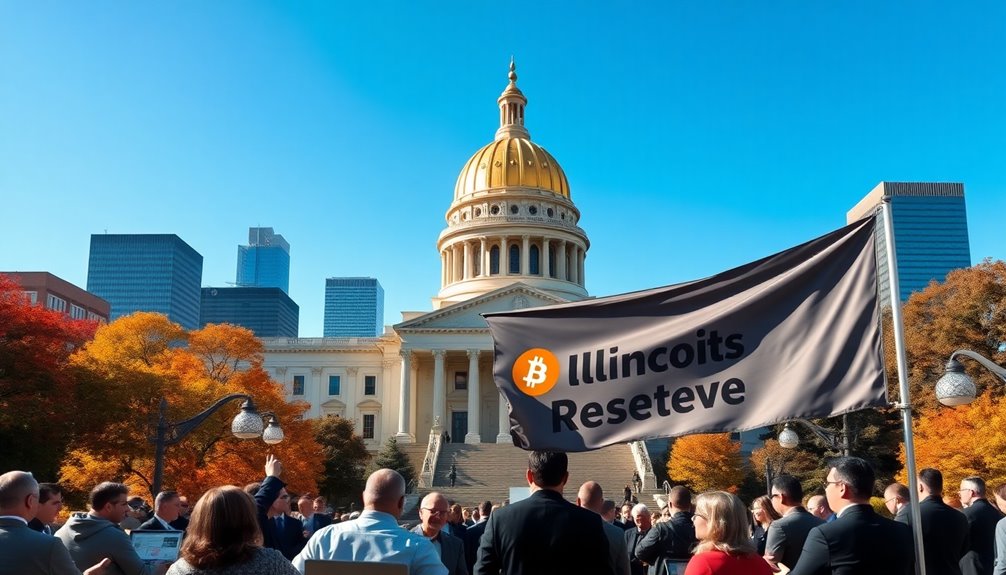Illinois is on the brink of becoming the first state in the U.S. to create a state-owned Bitcoin reserve. This move could reshape its financial strategy, but it doesn't come without challenges. Regulatory hurdles, market volatility, and environmental concerns complicate the plan. As the state navigates these issues, the implications for both local and national economic policies are significant. What will this mean for the future of public finance?

Illinois is stepping into the future of finance with its proposed Bitcoin reserve, a bold move that aims to integrate cryptocurrency into state assets. This initiative reflects Illinois' ongoing exploration of blockchain technology, which has broader applications beyond just digital currencies. By leveraging blockchain, the state seeks to enhance transparency and efficiency in government operations, a goal that resonates with many citizens. The Illinois Blockchain and Distributed Ledger Task Force has highlighted the potential for improving government processes through this technology.
The proposed strategic reserve bill is a significant step toward holding Bitcoin for at least five years. This move could diversify Illinois' financial portfolio, potentially mitigating risks tied to traditional asset classes. However, it's important to recognize that Bitcoin's value is notoriously volatile. You're looking at an asset that can swing wildly in price, which raises concerns about the state's financial stability. If Illinois proceeds, it must carefully weigh these risks against the potential benefits of entering the cryptocurrency market, including the role of digital asset management in protecting its investments.
Regulatory approval is crucial for this initiative's success. With cryptocurrencies largely unregulated, the state faces challenges in integrating Bitcoin into its financial framework. Clear regulations will help establish the guidelines necessary for managing such a reserve, ensuring that Illinois can navigate the complexities of this speculative asset.
Additionally, the stability of the cryptocurrency market will play a key role in the effectiveness of the reserve. If the market remains unstable, the risks could outweigh the advantages.
Illinois' proposal isn't just about the state; it could set a precedent for other states or even federal initiatives. A state-owned Bitcoin reserve could influence the broader cryptocurrency market, similar to how strategic oil reserves function. Some proponents argue that this could even help manage national debt by capitalizing on potential price increases.
Still, critics warn that a significant investment in Bitcoin may threaten financial stability rather than enhance it.
Moreover, the environmental concerns tied to Bitcoin mining can't be ignored. The energy-intensive nature of this process poses serious questions about sustainability, which could impact public perception of the initiative.
Scalability issues in blockchain technology also present challenges that need addressing to ensure smooth transactions across various systems.
As Illinois moves forward with its Bitcoin reserve proposal, it must consider these multifaceted challenges. Establishing a clear regulatory framework and addressing energy consumption concerns will be vital in shaping the future of this ambitious initiative. You'll want to stay informed about these developments, as they could influence the financial landscape for years to come.









